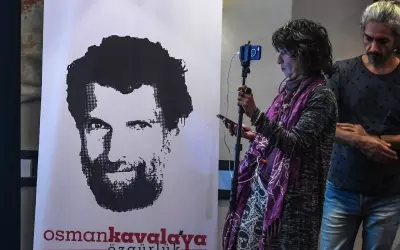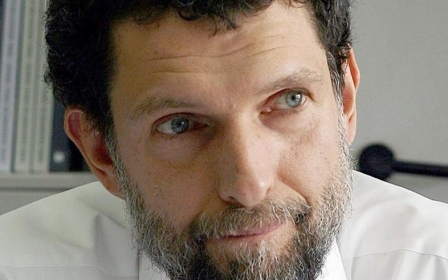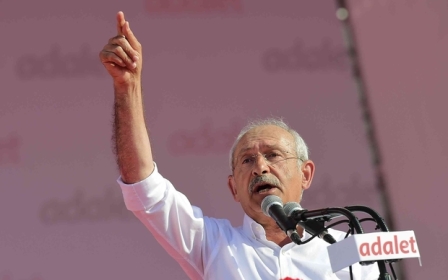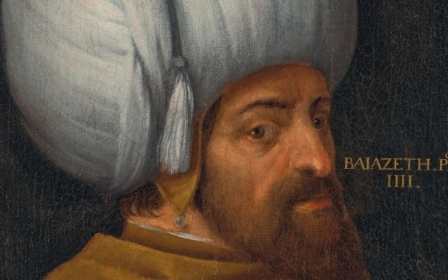Western nations say will not interfere with Turkey's internal affairs
The United States and several other western embassies in Turkey on Monday said they would abide by a diplomatic convention not to interfere in the host country's internal affairs after President Recep Tayyip Erdogan declared the ten diplomats persona non grata over the weekend.
"The United States notes that it maintains compliance with Article 41 of the Vienna Convention on Diplomatic Relations," the US Embassy in Turkey said on Twitter.
Canada, Netherlands, and New Zealand each sent a similar message, while Norway, Sweden, Denmark, and Finland re-tweeted the US message. There was no apparent statement from the German or French embassies on Twitter.
Monday’s embassies’ posts were in response to a joint statement released a week earlier on 18 October in which ten countries - Canada, Denmark, Finland, France, Germany, the Netherlands, New Zealand, Norway, Sweden, and the US - said the delays in the case of Turkish activist and philanthropist Osman Kavala would "cast a shadow" over Turkey's democracy and the judicial system.
Kavala has been detained for four years on charges of financing protests and involvement in an attempted coup.
The next day, the envoys of these ten countries were summoned to the Turkish foreign ministry in Ankara.
On Saturday, Erdogan said he ordered the Turkish foreign minister to “declare these ten ambassadors as persona non grata as soon as possible”, using a diplomatic term that is the first step before expulsion.
There has yet been no official notification from Turkey.
A spokesperson for the European Commission, the EU executive, described the situation as “a serious matter”, adding “we understand that the concerned countries have not yet been notified about any action".
Germany's Foreign Ministry said it had not received any notification from Erdogan that its envoy would be expelled, and that it had been in contact with France and the United States over the weekend.
The French Foreign Ministry said on Monday that it had not received any official notification from Turkey that it planned to expel the French Ambassador.
The West steps back
The statements by the embassies were made almost simultaneously on Twitter as Erdogan entered a cabinet meeting to discuss expelling the 10 ambassadors, a move that would open Turkey's deepest diplomatic rift with the West in his 19 years in power.
State-run Anadolu news agency, citing sources in the presidency, reported that Erdogan had "welcomed" the statements. Anadolu and state broadcaster TRT described the statements as "a step back" by the embassies.
In response, the Turkish lira rallied after hitting an all-time low of 9.85 to the US dollar and was at 9.61 at 1343 GMT. It has lost almost a quarter of its value this year.
The ten ambassadors represent NATO allies, trade partners, and members of the European Union, which Turkey aspires to join despite widening differences with the bloc in recent years.
Kavala, a businessman, and contributor to civil society groups is charged with financing nationwide protests in 2013 and involvement in a failed coup in 2016. He has been held in detention while his trial continues and denies the charges.
Rights groups say his case is emblematic of a crackdown on dissent under Erdogan, and Kavala said on Friday he would no longer attend his trial, as a fair hearing was impossible after recent comments by the president.
Earlier on Monday, parliament speaker Mustafa Sentop said Turkey's constitution banned discussion of ongoing court cases, including by Turkish politicians in parliament, and that the envoys' statement marked a "clear and disrespectful" interference.
"Those who are evaluating the stance our president has put forth on this issue as an unprecedented one must see... that the impudence shown by the ambassadors is also unprecedented," he said in the northwestern province of Tekirdag.
The European Court of Human Rights called for Kavala's release two years ago, saying there was no reasonable suspicion he had committed an offence and finding his detention had been intended to silence him.
Middle East Eye delivers independent and unrivalled coverage and analysis of the Middle East, North Africa and beyond. To learn more about republishing this content and the associated fees, please fill out this form. More about MEE can be found here.





